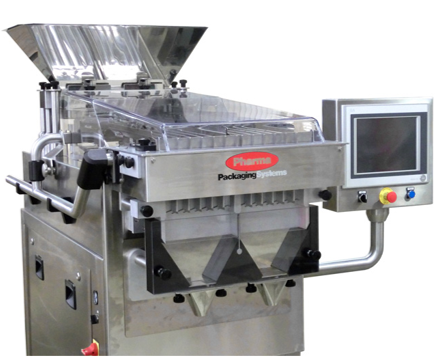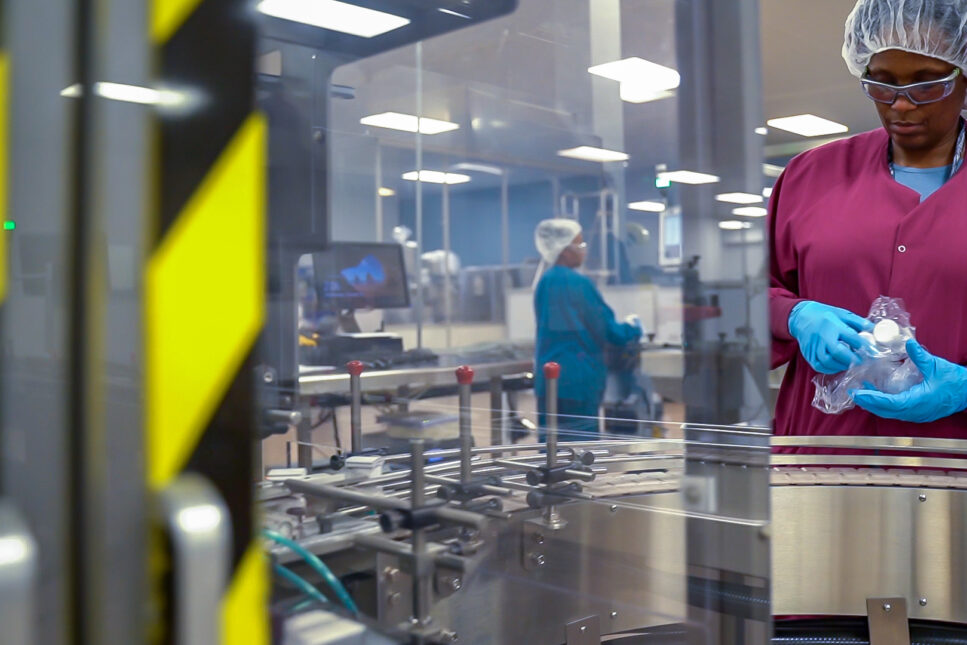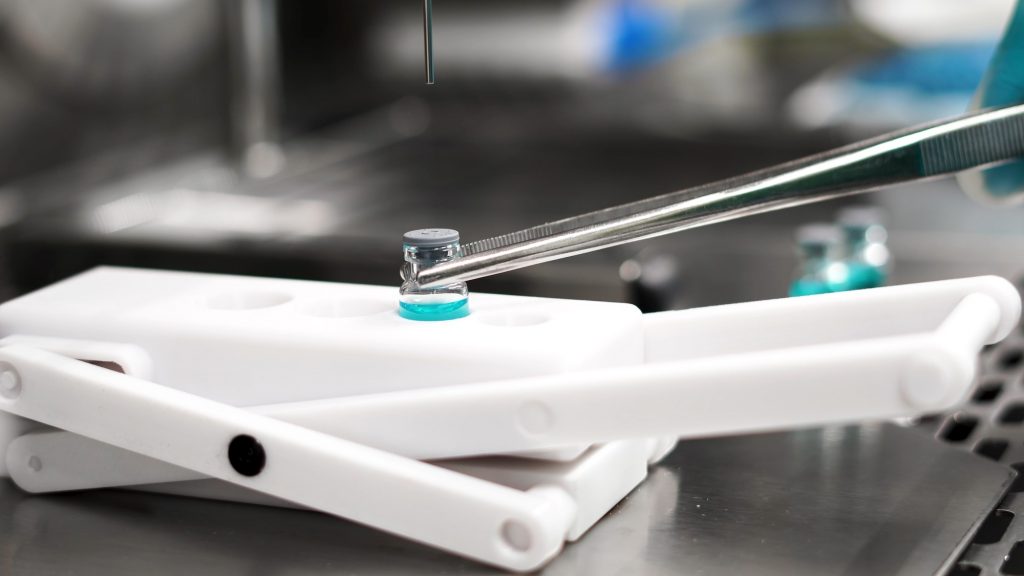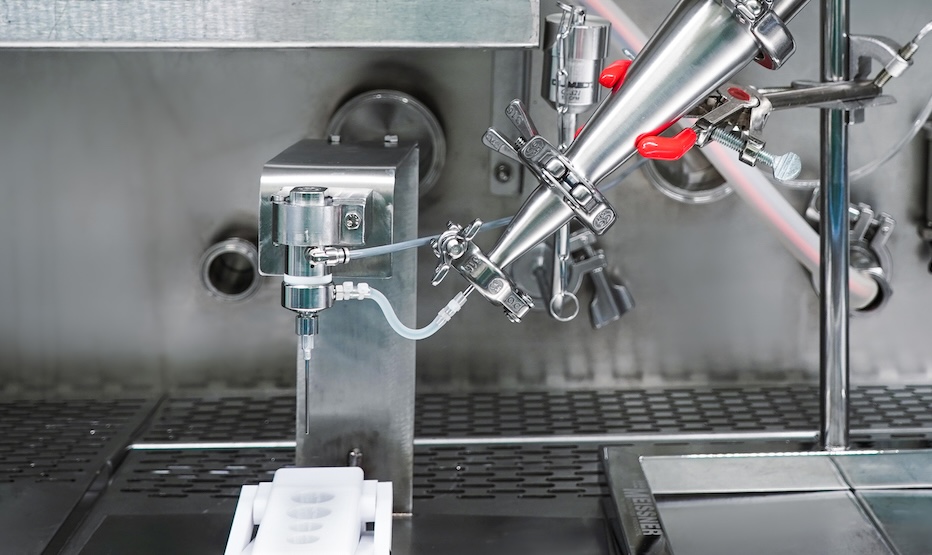Automation offers pharma companies many potential opportunities to reduce the cost of developing their drug products and to create efficiencies in trial management that can reduce the overall length of their trial
Introducing automation in equipment and processes for the manufacturing, packaging and management of clinical trials – or indeed, working with contract partners that have already implemented automation – can also help to expedite the scale-up to commercialization post-launch.
Sharp has implemented automated processes throughout its clinical services to deliver more efficient, flexible and secure services to its clients.
Market and cost pressures driving automation
Increased focus on rare diseases and more personalized approaches to oncology drug treatments has changed the clinical trials landscape enormously. Ongoing technological development in clinical trials is also driving progress in trial management software, and how new drugs are developed, manufactured and packaged.
If a drug fails in the later stages of a clinical trial, the financial impact on the sponsor and their suppliers can be catastrophic, which focuses all stakeholders in the clinical trial supply chain on efficiency and the reduction of costs where possible.
The benefits of automation on packaging lines
Upgrading or building new manufacturing lines that integrate automation into the line or the process can bring many benefits including; reliability, safety, compliance, security and efficiency. Each of these will contribute to the business case for the investment, ensuring it’s not just innovation for the sake of it, but rather a rational, long-term investment of modern manufacturing and packaging.
In the case of clinical trials, automating components of the packaging line as well as improving efficiency, can also add value by reducing the time and resources allocated to manual processes such as inspection and labeling.
Sharp’s High-Speed Bottling Solution
– High-speed infrared sensors for multiple capsule and tablet types
– Bottle gross/tare check weigh system for dose accuracy
Find out more
Improving speed and accuracy
The latest automated bottling equipment offers an excellent technical solution using infrared light for high accuracy fill rates. For particularly low-weight tablets, bottlers can offer integrated weight checkers that weigh the individual bottles as they fill.
Sharp’s Automated Capsule Filling Solution
– Combined dosing of various products with excellent results in dosing accuracy
– Maximum versatility for all encapsulation needs and ability to combine doses into the same capsule, tablet or micro tablet
Find out more
Compliance and reliability
Safety and reliability are critical in a GMP manufacturing and packaging environment and automation can significantly reduce one of the biggest risks to both – human error. Automation of processes can create better consistency and accuracy by eliminating human error in specific tasks such as for example bottle filling and labeling.
Regulatory compliance can also benefit from automated production and processes. It is critical that drugs manufactured or packaged are of a minimum standard required by both the regulatory authority and the pharma client. Automation will often bring better dependability and assurance that a packaging or labelling process will be executed as designed every time, removing the risk of human error which is more prone to deviations.
Improving labeling processes
In the same way that commercial packaging lines need to incorporate solutions for serialization into the line, the same process can benefit a clinical trial labeling process, such as 2D barcoding, that encompasses the unique data for each label.
Service providers with commercial serialization expertise are now applying their solutions and approach to automating clinical packaging lines to support the verification of assembly processes and provide suitable coding for despatch. This also provides an easy way to generate randomized labels that are essential for successfully blinding products.
Clinical trials require each product to be identical in appearance as variations can influence the results, invalidating the study. Technical advances in camera vision and verification systems over the last decade have allowed companies to replace manual inspection with an automated equivalent to ensure the uniform presentation of packaging and labeling, at a faster pace.
Similarly, given the huge growth in biologic drug presentations, there is a growing need for a much greater level of technical precision for the assembly and labeling of these formats – such as pre-filled syringes and vials. This trend favors automated labeling processes, as there is an extremely small tolerance for label placement deviations which would have a critical-to-quality effect.
Sharp’s Automated Blister Packaging Solution
– Flexible blister packaging for large & small batches, thermoform & coldform
– Integrated vision inspection for maximum reliability
– Multiple blister formats, straight knife and round corner die punch
Find out more
Optimise your planning and resource allocation
Automation will allow production employees to become free from repetitive manual tasks and instead, they can perform more meaningful and value-added activities that require reasoning and problem-solving skills.
Certain classes of pharmaceuticals and drugs of high value will require more secure production rooms operated solely by specially trained and vetted employees. Automation in these production areas can reduce the number of people in contact with those products and therefore reduce opportunities for potential diversion.
Improve capacity and potential scalability
Automation also offers the opportunity to seamlessly add additional capacity for additional batches or scale-up. It can also make tech transfer simpler and save critical time to launch should the drug progress through the approval process to commercial supply.
Pharma companies will benefit from partnering with contract services providers that can deliver for both clinical and commercial supply, allowing sponsors to use the commercial technology for clinical projects and simplifying scale-up. This can have significant advantages in reducing the time to market for drugs as they go through approval to launch.
Automating technology in clinical trials
The ongoing focus on developing treatments for rare and orphan indications as well as personalized medicine in oncology has continued to drive a corresponding increase in the number of complex clinical studies. As trial designs evolve to meet the needs of these often unique, smaller and more diverse patient populations, one of the key challenges for trial sponsors is the management of the enormous amount of patient and trial data being generated as a result.
This complexity in design and the volume of data can only be securely and accurately managed through automation and technology, using specialist clinical trial software, including Interactive Response Technology.
Sharp’s Interactive Response Technology
– It’s configurable, never coded, with an array of core features easily customized to your protocol
– Offers a forms-based interface in a familiar tree structure
– Comes complete with easily customizable built-in reports
Find out more
IRT platforms can manage patient interactions and drug supplies during clinical trials and perform a range of functions for sponsors, drug depots and investigative sites. IRT systems offer much greater visibility to inventory levels, often integrating to warehouse return systems. Often they will also include a supply forecaster which can predict patient enrolment and clinical supply consumption.
Automating CMC (Chemistry, Manufacturing, and Control) processes
Sharp has been involved for many years in using digital data to help automate CMC processes in clinical trials. In particular, Sharp has seen benefits from its investment in 2D barcoding, IRT (Interactive Response Technology) and serialization. These benefits include:
- Increased efficiency in the production area
- The speed by which information can be retrieved electronically on a specific bottle, carton or box is multiple times faster than finding it manually
- Greater granularity of data available on-demand
- This allows questions to be addressed that might not have even been asked before. For example, queries dealing with what products were made in a specific time frame, using an identified lot of API, in a certain dose level of product
- Better date accuracy
- The concerns with transcription errors are far greater with paper systems due to the multiple times data is documented and transcribed and each manual entry has the risk of error
- Opportunity for data sharing and collaboration By barcoding and digitizing data, it can be made available to clients. Clients can log into a custom online portal to review inventory and shipments in real-time, down to the carton level and in near-real-time from anywhere and at any time.
Patient enrolment and retention
Patient enrolment and retention are one of the most critical variables in a successful clinical trial. Decentralized or siteless enrolment is now possible where patients can enroll using the internet, which eliminates the need to travel to a trial site. This presents the opportunity to more patients to participate which results in better, more accurate and more timely responses to key indications.
To this end, there is growing interest in DTP (direct-to-patient) distribution strategies in trials. DTP distribution negates patients’ needs to travel to the clinical site and can potentially contribute to improved patient recruitment and retention over traditional drug distribution strategies.
Automated processes are integral to a successful DTP program. Clinical trials require a comprehensive range of services and the ability to seamlessly manage the entire supply chain of a trial drug, including the manufacture, packaging, labeling and distribution of the product. Appropriate protocols and distribution strategies are required which can both mitigate risks and drive better outcomes.
Sharp’s ongoing investment in the latest equipment and facilities can offer you the capacity, efficiency and flexibility you need for your clinical trials.
Contact us today to see how we can help





